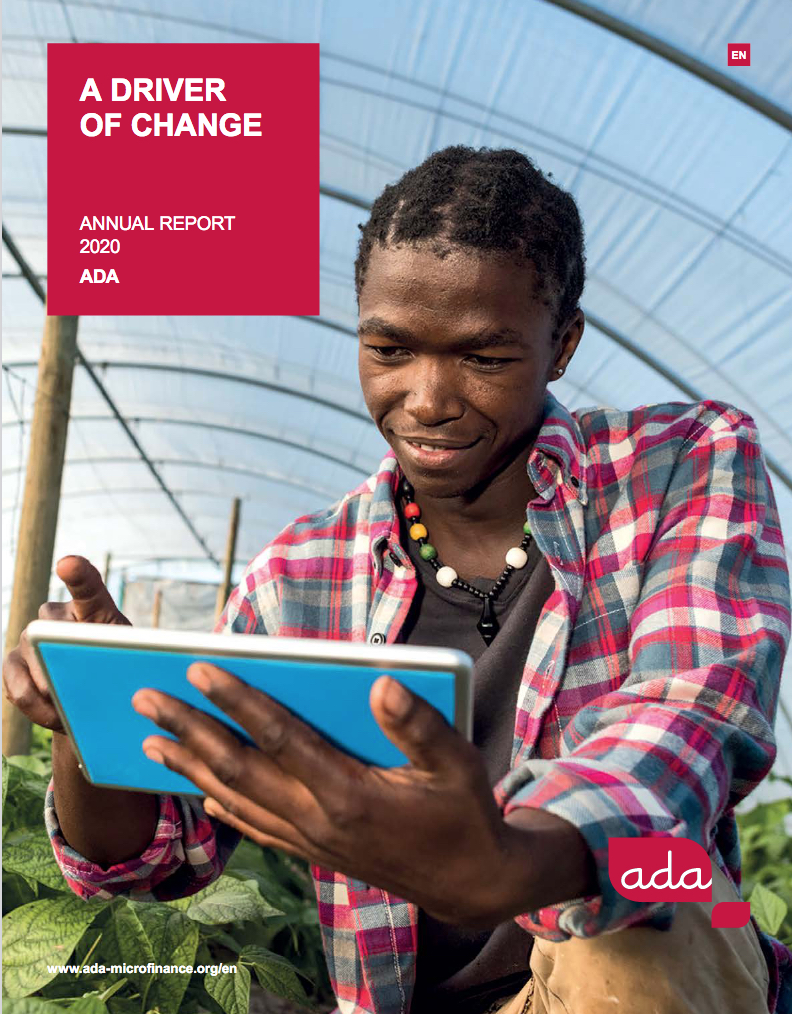Contents
SUPPORT FOR YOUNG ENTREPRENEURS THROUGH MICROFINANCE (< €10 000)
- Rwanda (UFC)
- Sénégal (U-IMCEC)
SUPPORT FOR YOUNG ENTREPRENEURS THROUGH INNOVATIVE FINANCING (€5 000 - €50 000)
In West Africa:
- in Burkina Faso, with the incubator La Fabrique and the financial institution Cofina Burkina;
- in Mali, with the incubator Donilab and the financial institution Cofina Mali;
- in Senegal, with the incubator Jokkolabs and the financial institution Cofina Senegal.
In Latin America:
- in Nicaragua, with the incubator Impact Hub Managua;
- in Guatemala, with the incubator Alterna;
- in El Salvador, with the incubator INSERT/Yawal and Alterna.
Key figures for 2020
- 3 MFIs in Africa (Senegal, Rwanda, Togo) received support for the development of financial products and non-financial services for young people;
- 6 incubators (3 in Africa: Senegal, Mali, Burkina Faso, 3 in Latin America: Nicaragua, El Salvador and Guatemala) received support to develop a support offer for young entrepreneurs;
- 331 young entrepreneurs received credit;
- 328 young people received training or entrepreneurship support.
New initiatives for the financial inclusion of young entrepreneurs
Young entrepreneurs (18-35 years old) represent a significant employment pool. A large majority of them need funding of between €100 and €100,000 to develop their business, access the market and attract investors. However, since banks target large companies and microfinance institutions (MFIs) finance microentrepreneurs, these young entrepreneurs, who are somewhere in between, are often neglected, particularly because of the risk they represent. They are called the "missing middle". ADA has started a specific programme called the "Young Entrepreneurs Sustainable (YES) Funding Initiative" to fill this gap and facilitate market access for these young entrepreneurs that it has not supported elsewhere for many years now through microfinance.
In addition, since 2018, ADA continues to support the economic and financial inclusion of young entrepreneurs through a global "Market - Technical Support - Financing" approach based on the complementarity of specialised players such as incubators, catalysts or funders.
Support for young entrepreneurs through microfinance
(need for financing between €100 and €10 000)
1. Support for young micro and small entrepreneurs in Rwanda with UFC
In 2016, ADA, Rotary Espoir 2005 and Umutanguha Finance Company (UFC), a microfinance institution based in Rwanda, implemented a pilot project "Support for young entrepreneurs in Rwanda", with the aim of testing an approach that can contribute to the professional integration of young people. This involves giving young entrepreneurs, mainly craftspeople, access to financial and non-financial services tailored to their needs to enable them to create or strengthen their own activities. A credit product called "Artisan Youth Loan" was created. In 2018, following the positive conclusions of the pilot phase and the request from other MFI agencies, preparations were made to expand the distribution of the product.
To ensure the sustainability of this initiative in Rwanda, ADA and Rotary had decided to renew their partnership in 2019 and 2020, through a co-financing agreement for an amount of 183,124 euros. Through this new project, entitled "Support for young micro and small Rwandan entrepreneurs", 4,500 young jobs should be created by 2020.
In 2019, dissemination was greatly intensified and the product was deployed in all 18 branches of the MFI. 2,000 young people were trained and opened their savings accounts with UFCs and 300 young people were financed.
Project partner
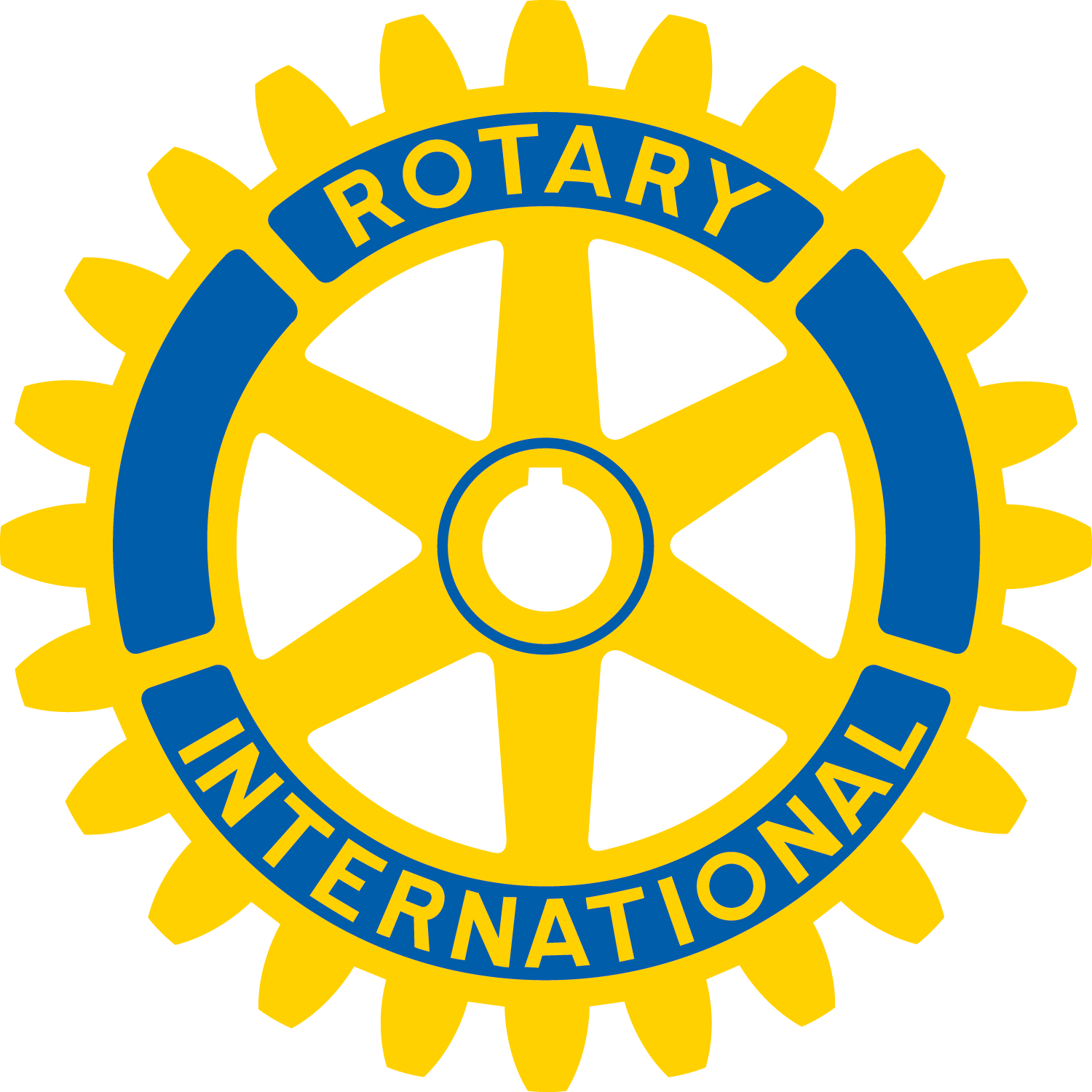
2. Facilitating the financial inclusion of young Senegalese entrepreneurs with UIMCEC
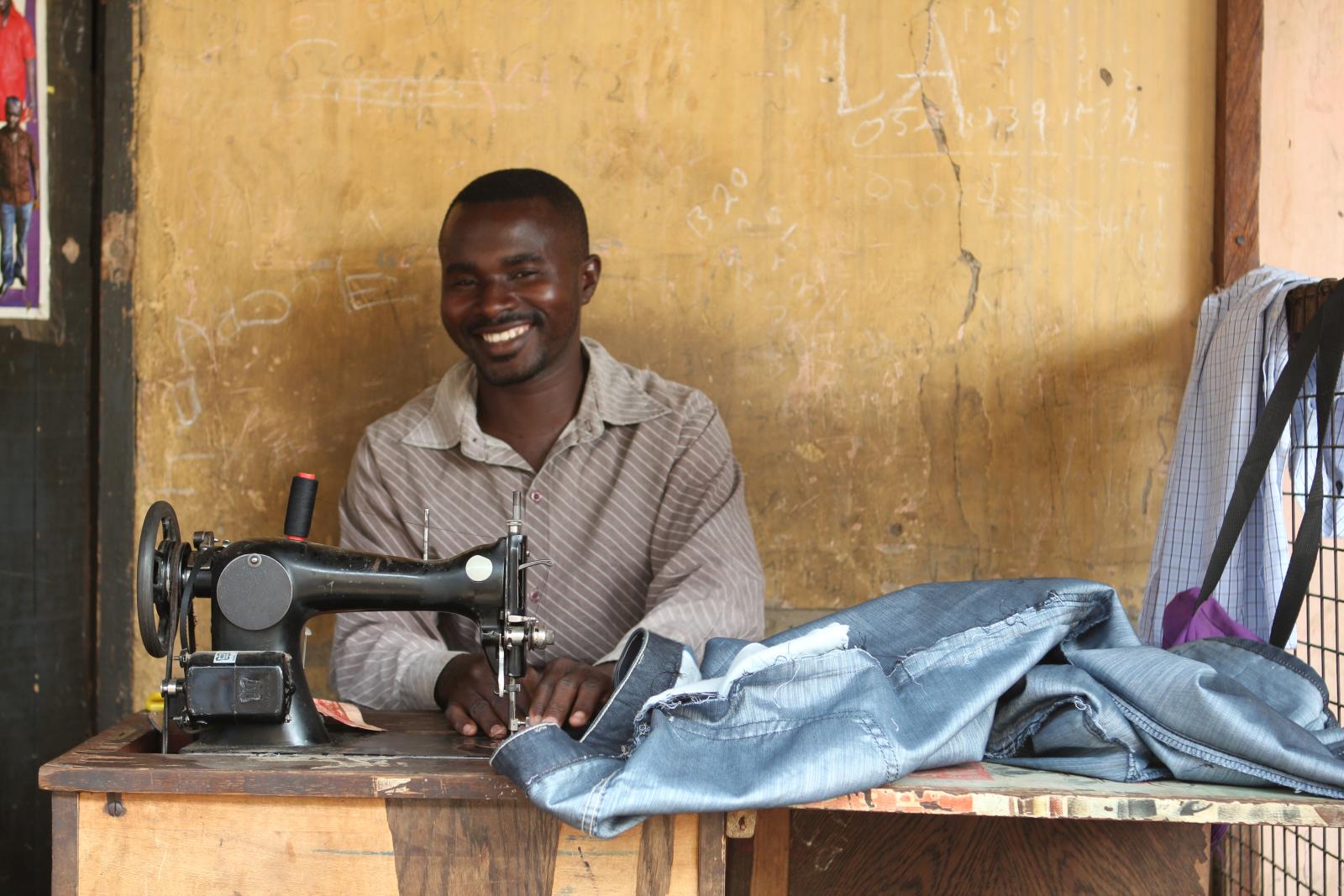
In July 2020, ADA with the support of LUXDEV started its intervention aimed at facilitating the financial inclusion of young people from formal and informal training systems in the Central region of Senegal. This project, initiated within the framework of PIC IV (Indicative Cooperation Program), covers the regions of Kaolack, Fatick, Kaffrine and Diourbel. The microfinance institution UIMCEC (Union des Institutions Mutualistes Communautaires d'Epargne et de Crédit) based in Senegal, benefits from support to develop savings and loan products adapted to the needs of this specific clientele of young first-time entrepreneurs. In addition, access to local financial services in this particularly well-served area is made easier thanks to digitalization.
In order to improve risk management, the young people financed benefit from upstream and downstream support. Upstream, the young first-time entrepreneurs are put in contact with UIMCEC for access to credit and to acquire both technical and interpersonal skills to carry out their project. Downstream, a follow-up in the form of mentoring is also envisaged in order to accompany the young people in the implementation of their project to avoid misappropriation, to guide and advise them when they are confronted with difficulties, to constitute a moral support when they are subject to discouragement or demotivation, but also beyond that to enable them to optimize their financing by helping them to seize market opportunities. In addition, for young people wishing to get involved in agro-ecological production and food processing, the Jokkolabs incubator has been associated with the project.
By 2022, it is expected that 1,000 young people will have access to savings services and that 450 of them will be financed to launch their projects.
Project partner:
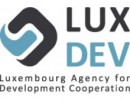
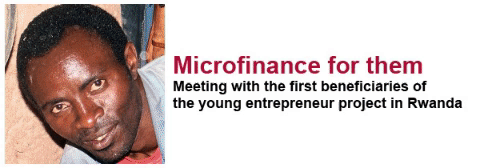
Support for young entrepreneurs through the YES Funding Initiative
(financing need of between €10,000 and €100,000)
With its 25 years of experience, ADA seeks to explore new financing mechanisms for activities with a high potential impact on growth and job creation. Young entrepreneurs fall into this category, and are one of ADA's priority targets. So in addition to its projects to finance young entrepreneurs through MFIs, ADA has identified three types of partners with complementary expertise in supporting entrepreneurs: incubators/accelerators; market catalysts (institutions that facilitate marketing) and financing institutions (investment funds, crowdfunding platforms, business angels, etc.). Since 2018, 185 small businesses and 1,212 agricultural producers have benefited from the 11 projects carried out with these partners in West Africa (Burkina Faso, Mali and Senegal) and Central America (El Salvador and Honduras).
Overcoming a funding shortfall through the YES Funding Initiative
To respond to the need for a “missing middle” made up of young entrepreneurs with a financing need of between €10,000 and €100,000, ADA launched in 2019 the “Young Entrepreneurs Sustainable Funding Initiative” (YES) in Africa and Central America. YES is a financing model in which investors/financing institutions work hand in hand with incubators/accelerators who support young entrepreneurs in preparing them to receive the investment.
YES is based on 5 principles:
- granting a loan, the repayment of which is based on the company’s turnover;
- support for the entrepreneur before and after access to finance;
- part of the loan must be used to cover the technical assistance provided by the incubator/accelerator;
- the duration of the financing is between 3-5 years;
- the amount of the financing increases over time
In 2019, ADA received USD 50,000 from the Deutsche Bank Microcredit Development Fund to start developing YES. This financing allowed ADA to launch the initial pilots in 2020.
A first pilot in Guatemala with the incubator Alterna
To test the YES Funding Initiative, a strategy was adopted for the West African and Central American regions, respectively, where partnerships were set up with incubators and accelerators. In Guatemala, due diligence was performed on the Alterna incubator and its Catalyzer funding program, financed by the Inter-American Development Bank. Following this, ADA will grant Alterna EUR 150,000 to finance Catalyzer’s small social entrepreneurs.
Financing young entrepreneurs through financing institutions
In Senegal: financing of E-Cover through WIC Capital
"Adapting —that's what these young entrepreneurs do day in, day out."
Back in November 2019, no one talked about Covid-19. I had just finished a three-day mission to Senegal where I paid a visit to some of our partners including a microfinance institution ADA is planning to develop financial products with for young entrepreneurs during 2020. I also met with entrepreneurs supported by an incubator we are partnering with to develop an innovative financing solution to meet entrepreneurs’ financial needs between 30,000 and 50,000 Euros. Finally, I talked with another partner — WIC Capital —, unique in West Africa, a company recently established, with the support of ADA, by WIC - a network that gathers over 80 women who joined forces to promote women's entrepreneurship in Senegal.
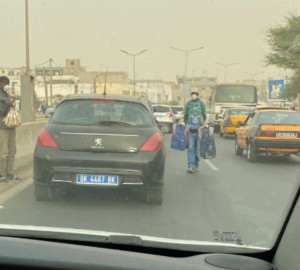
As the taxi takes me to the airport, about forty kilometers from the city, I can witness Dakar's development. In recent years, traffic has become the talk of the town. With a population density of 12,617 inhabitants/km2 and a growing car fleet, estimated at more than 300,000 vehicles, Dakar is stifling. In this endless line of cars, I picture the kind of environment that Dakar can offer — dynamic, enterprising, sizzling, sporty, a place where ideas flow from all sides. Every entrepreneur, partner, just about everybody has a plan. All are enthusiastic, passionate about what they do, and talk about it with conviction. You get the impression of always being on the move in this town, except when you are trapped in a traffic jam! On the way to the airport, I worry about two things: will I be on time for my flight despite the bottlenecks? And the second one: since this morning, the city is shrouded in some sort of fog, a thick dust cloud. My driver, a true Dakarois, seems surprised too by the dust at this time of the year; "It is climate change" he assures me. The hot air is unbreathable. I am amazed by the resourceful spirit of these young people who come up so swiftly with resources such as masks to deal with the dust.
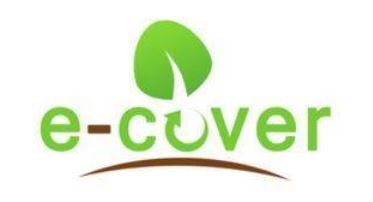
The ever-growing number of cars on Dakar’s roads times four gives you an idea of how many tires there are! A real environmental conundrum for waste management! A local company wants to provide a sustainable solution to this problem: E-Cover, promoted by two young Senegalese: Yaye Souadou Fall, who grew up in Dakar where she also trained in business administration and has a longstanding entrepreneurial spirit, and Khady Diallo trained in Quality Safety and Environment —also in Dakar— who is passionate about the development of industrial processes. The two entrepreneurs are pursuing a Master in Business Administration at a local university. Their E-Cover project aims to find useful applications for tire waste such as shoe soles, aggregates, and shredded tires.
E-cover's Facebook Page: https://www.facebook.com/ecover221/
In March 2020, WIC Capital announced its first investment in E-Cover and I can only applaud the company's ambitions.
“What drove us towards entrepreneurship was more instinct than anything else. We wanted to cure our hometown's secret ailment, namely squalor, and pollution. Our environmental activism started from an observation: we run into scrap tires at almost every street corner. All of that moved us to find a tire recycling solution having both environmental and social impacts."
Yaye Souadou Fall, funder E-Cover
Entrepreneurship in Africa is surely not easy, but doable
In 2015, aged 20, Souadou and her friends launched E-cover with a capital of just 30,000 Fr CFA (45 Euros), a meat grinder, and lots of entrepreneurship. She recognizes that the beginning was hard: in addition to managing the start-up, and to consolidate her experience and acquire the necessary know-how for her budding business, she worked as a Program Assistant, then as Customer Service Export Coordinator for a multinational established in Senegal, ending up as project manager for a network of entrepreneurs. Her partner, Khady Diallo, joined the E-Cover project to support the cause of environmental protection, so close to her heart. She got her experience in industrial management working for large groups based in Dakar.
The project — in the research, development and manual production phase since 2015 — has allowed the two entrepreneurs to test a variety of possible products based on recycled tires, ranging from tire granulate to shoe soles and flooring. “During this period, we invested our capital, did a crowdfunding campaign with friends and family and won several entrepreneurship awards both in Senegal and abroad for a total of 22.2 million FCFA, some 34,000 Euros”, says Souadou.
But the going got rough for them, as is usually the case with many startups, despite goodwill, hard work, and the awards.
Key figures
- 2015: inception of business and prototype
- 2016: first financing round. The funds raised made it possible to launch a mini production unit with the purchase of 20 grinders. At the time the company had over 20 employees
- 2017: installation of a manual production unit
- 2018: shutdown of the unprofitable unit due to low production
- 2019: collaboration with WIC Capital, strategy redesigned
- 2020: funding of 330,000 Euros from WIC Capital
Collaboration with WIC Capital, funding and a different way of looking at innovation
In 2018 - 2019, ADA collaborated with WIC on a project to create an investment facility, in order to test a due diligence process and make investments between 50,000 and 300,000 Euros. During 2019, WIC Capital was created with a legal form adapted to the country and a due diligence process was put in place.
![]() Suite à un arrêt des activités en 2018, l’entreprise s’est remise à la recherche de financement pour pouvoir acquérir les machines dont elle a besoin pour sa production et disposer de l’argent nécessaire pour acheter les matières premières. Identifiée comme potentielle pour le portefeuille WIC Capital, la promotrice de E-Cover a passé toute l’année 2019 avec WIC Capital, en challengeant et affinant le modèle économique afin d’être rentable et prête à l’investissement. Avec ce recul et l’accompagnement des experts du WIC Capital, l’entreprise a pu identifier une nouvelle opportunité avec des produits rentables sur le marché local, qui ne figuraient pas parmi la gamme proposée au départ. Yaye Souadou reconnaît que l’avantage d’un financement avec WIC Capital, contrairement à une banque, réside dans l’accompagnement technique. Ce suivi, une banque classique n’aurait ni le temps, ni les moyens, ou dans certains cas, ni l’expertise nécessaire pour le faire. Au sujet du WIC Capital, les deux jeunes femmes n’ont que des éloges, car la société d’investissement met à disposition de ses partenaires un réseau de femmes entrepreneures [issues du WIC] qui soutiennent les projets financés. Ainsi, la nouvelle structure de financement met en place des mécanismes adaptés aux réalités de l’entrepreneuriat féminin sénégalais. La société d’investissement s’assure que les entrepreneures restent majoritaires dans le capital afin de garantir son engagement durant l’exécution du projet.
Suite à un arrêt des activités en 2018, l’entreprise s’est remise à la recherche de financement pour pouvoir acquérir les machines dont elle a besoin pour sa production et disposer de l’argent nécessaire pour acheter les matières premières. Identifiée comme potentielle pour le portefeuille WIC Capital, la promotrice de E-Cover a passé toute l’année 2019 avec WIC Capital, en challengeant et affinant le modèle économique afin d’être rentable et prête à l’investissement. Avec ce recul et l’accompagnement des experts du WIC Capital, l’entreprise a pu identifier une nouvelle opportunité avec des produits rentables sur le marché local, qui ne figuraient pas parmi la gamme proposée au départ. Yaye Souadou reconnaît que l’avantage d’un financement avec WIC Capital, contrairement à une banque, réside dans l’accompagnement technique. Ce suivi, une banque classique n’aurait ni le temps, ni les moyens, ou dans certains cas, ni l’expertise nécessaire pour le faire. Au sujet du WIC Capital, les deux jeunes femmes n’ont que des éloges, car la société d’investissement met à disposition de ses partenaires un réseau de femmes entrepreneures [issues du WIC] qui soutiennent les projets financés. Ainsi, la nouvelle structure de financement met en place des mécanismes adaptés aux réalités de l’entrepreneuriat féminin sénégalais. La société d’investissement s’assure que les entrepreneures restent majoritaires dans le capital afin de garantir son engagement durant l’exécution du projet.
« WIC Capital prend des risques qu’aucune banque commerciale locale ne prendrait.
Il investit sur du potentiel même pour une entreprise comme la nôtre qui démarre ses activités »
Yaye Souadou Fall, fondatrice E-Cover
As a result of the closedown in 2018, the company started to seek funding for the necessary investments in machinery and the purchase of inventories. Identified as a potential investee by WIC Capital, the promoter of E-Cover spent the whole of 2019 with WIC Capital, challenging and refining the business model in order to make it profitable and ready for investment. This transitional stage plus the support of WIC Capital’s experts allowed the company to identify new opportunities in the local market for profitable products that were not part of the original offering. Yaye Souadou recognizes that the advantage of being financed by WIC Capital, instead of a bank, lies in the technical support. A traditional bank wouldn’t have the time, nor the means, or in some cases not even the necessary expertise to deliver this kind of assistance. For WIC Capital, the two young women have nothing but praise, because the investment company provides its partners with a network of women entrepreneurs — belonging to WIC — who support the funded projects. Thus, this new organization develops procedures adapted to the realities of Senegalese female entrepreneurship. The investment company also makes sure that the entrepreneurs keep a controlling stake in their ventures to guarantee their commitment during the execution of the project.
“WIC Capital takes risks that no local commercial bank would.
It invests in your potential, in a business that like ours is just starting up”
Yaye Souadou Fall, funder E-Cover
Due to Covid-19, we have to adapt
Covid-19 caught them in the middle of investment negotiations, when activities hadn’t even restarted, thus slowing down administrative procedures. But the two entrepreneurs do their best to implement the project on time, hoping that the situation will soon improve. They remain upbeat. The machines ordered from China are expected to arrive in Senegal next month. The assembly which should normally be performed by a Chinese engineer, will perhaps have to go through Zoom videoconferencing to guide the installation by young Senegalese engineers. We have to adapt, she tells me. Not easy, but doable, because adapting is what these young entrepreneurs do on a daily basis, but… isn't that what we all do to keep on working in times like these?
Messages to other young entrepreneurs
As young African women in a male-dominated world, Yaye Souadou and Khady Diallo have been regarded as dreamers and very often misunderstood. From this journey, they remember that very frequently people tried to discourage them on account of their age. Other people considered this industry as being just for men, and to top it off some even deemed them not rich enough to run a business. They also encountered swindlers and many interferences.
So, for young would-be entrepreneurs, particularly in Africa, still hesitating to venture into entrepreneurship, Souadou and Khady have a message — "just believe and go for it". Because in spite of everything, what gives them the strength to keep on going are people fighting alongside them, sharing a common cause, those who encourage them, those for whom they are role models and put their hopes in them; also those who inspire them, and those returning home to work for their continent. There are also the little joys you experience recycling and discovering solutions that relieve our environment. They end with a quote from Martin Luther King: "Believe in your dreams and they may come true. Believe in yourself and they will come true.” It is surely a wink at the ambitions they hold for E-Cover and their impact on the environment and the continent.
Relatively spared from the coronavirus pandemic, Senegal has chosen not to lockdown the population to avoid affecting the economy. However, the government has decided to extend the state of emergency until June 2 and restrain travel. From a health point of view, the authorities have chosen not to systematically hospitalize patients showing few or no symptoms, quarantining them instead to avoid congesting hospitals.
ADA, member of the ANDE network

In 2016, ADA became a member of the ANDE network (Aspen Network of Development Entrepreneurs), a global network of organizations working to promote entrepreneurship in emerging countries. By supporting the development of the inclusive finance sector, ADA is an integral part of the actors contributing to the emergence of a favourable environment for micro and small entrepreneurs. Since its accession, ADA has exchanged experiences and established partnerships with other affiliated institutions in Central America and Africa.
A plateform to tackle Covid-19
ANDE has joined forces with other institutions in the region to launch a platform with useful tools and information for the Latin American entrepreneur ecosystem in the context of Covid-19: https://www.emprendedoresfrentealcovid19.org
The platform connects entrepreneurs to resources such as financing/subsidy opportunities, webinar series, digital tools and more to cushion the blow of the pandemic on their businesses.
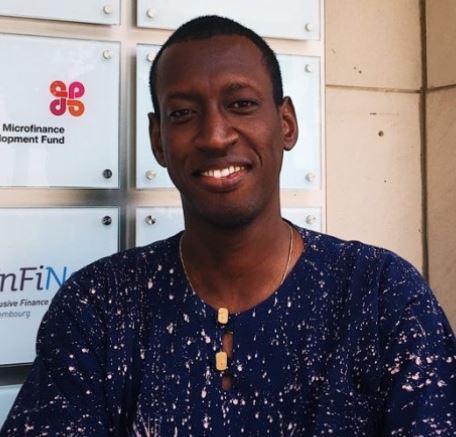
"ADA works to capitalise its experience with our microfinance partners in funding the youth (entrepreneurs). We wish to go further and are currently exploring innovative solutions for the funding of small enterprises experiencing strong growth driven by this youth in order to make them autonomous and viable."
Dominique Owekisa, ADA project manager and member of the Steering Committee of ANDE West Africa
